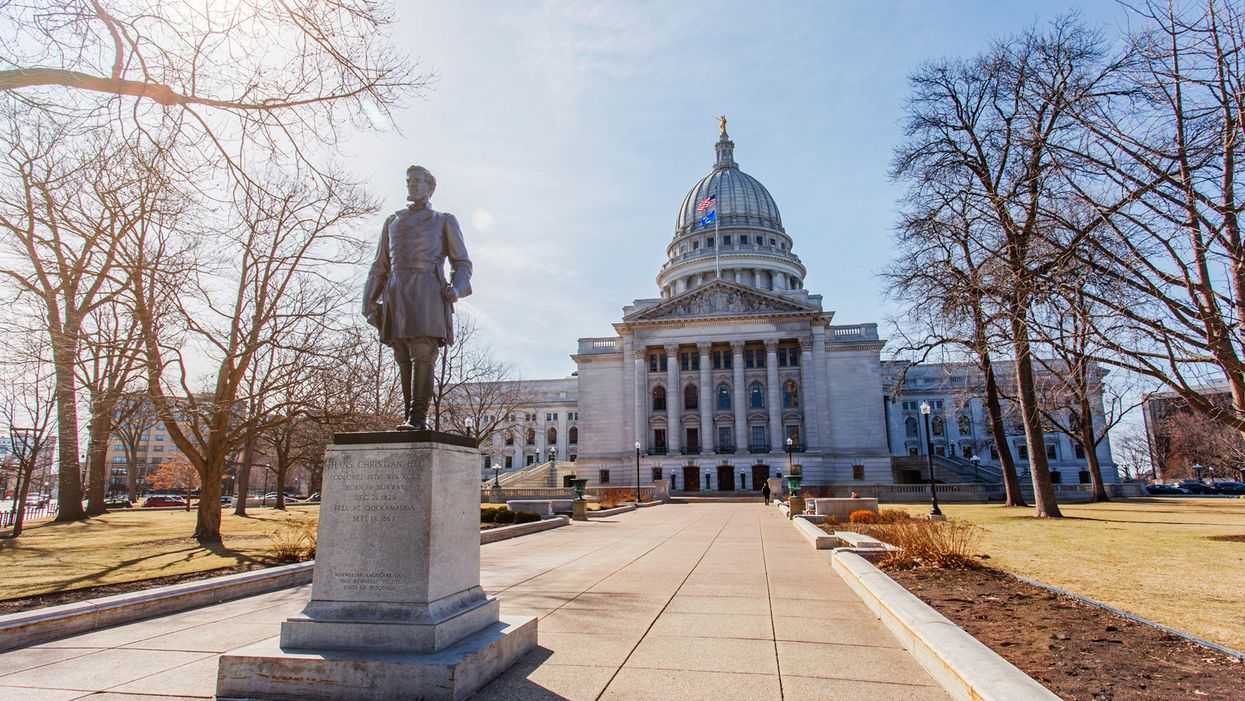Wisconsin's Democratic governor has an idea — at once innovative and as old as time — for combating the gerrymandering he expects next year from the Republicans running the Legislature: He hopes to embarrass them to do the right thing.
On Monday he ordered the creation of an independent commission to show how the state's political lines could be drawn to promote political competition and minimize ridiculous contours. Once that work is done, Gov. Tony Evers said, he'll dare the GOP powers in Madison to spurn those nonpartisan maps in favor of their own.
The Republicans were quick to answer that the shaming strategy won't work, because on the pretty safe bet they win continued control in November they'll feel no restraint in drawing boundaries that keep it that way for another 10 years.
Evers had been calling for legislation turning over the next decade's redistricting to a panel of citizens, and leaders of the Republican majorities at the capital had been laughing at the idea.
So, in last week's State of the State speech, he vowed to act on his own by creating a nonpartisan panel he dubbed "The People's Maps Commission," which will travel the state taking testimony and then come up with "fair, impartial maps for the Legislature to take up next year" after the census provides the required data about population shifts.
He signed an executive order fulfilling that promise Monday, decreeing the members will come from all eight of the state's congressional districts and have expertise in redistricting but have no connection to lobbying or partisan politics.
"People should be able to choose their elected officials, not the other way around," Evers said at a news conference in his Capitol office. Of the Republicans, he said: "Certainly I would hope that they see the light and adopt our maps."
GOP leaders were plain in the message that they won't take the bait. "He can form whatever fake, phony, partisan process he wants to create, but I have no doubt in the end we will do it the way we always have, which is to follow the constitution," Assembly Speaker Robin Vos told the Wisconsin State Journal.
State Senate Majority Leader Scott Fitzgerald said he thought the governor's plan would violate the state constitution. Democratic state Attorney General Josh Kaul said the commission would be perfectly legal.
Wisconsin stands as one of the best remaining examples of GOP power-play mapmaking in the country during the 2010s, now that the party's efforts in Pennsylvania and North Carolina have been struck down as violating those state constitutions. After Republicans took total control of state government away from the Democrats a decade ago, they made sure all the new maps were colored assertively in red, by packing as many Democrat as possible into districts in Milwaukee and Madison.
The approach worked as designed in four straight elections – culminating in the 2018 midterm, when Republicans won 63 of the 99 state House seats with just 45 percent of the overall legislative vote and five of the eight U.S. House seats with just 46 percent of the overall congressional vote.
Under current law, congressional and state legislative district boundaries are drawn by the courts if the governor ends up successfully vetoing maps proposed by the Legislature. So the Democrats, with Evers in office until 2022, already have more power than they had last time – and they could have more if the governor persuades the courts to consider the alternative maps his new commission produces.
"When the governor vetoes their maps and they go to court, they'll have to make an argument for why the court should accept their rigged maps," Sachin Chheda, who runs the Fair Elections Project, an advocacy group that promoted the Evers idea. "If the Republicans choose not to use the people's maps, then that will be their choice, but we're all going to know what we're dealing with."
A Marquette University Law School poll a year ago that asked about redistricting showed that 72 percent of Wisconsinites favored giving the job to a nonpartisan commission and just 18 percent wanting the job to remain with the Legislature.




















Marco Rubio is the only adult left in the room